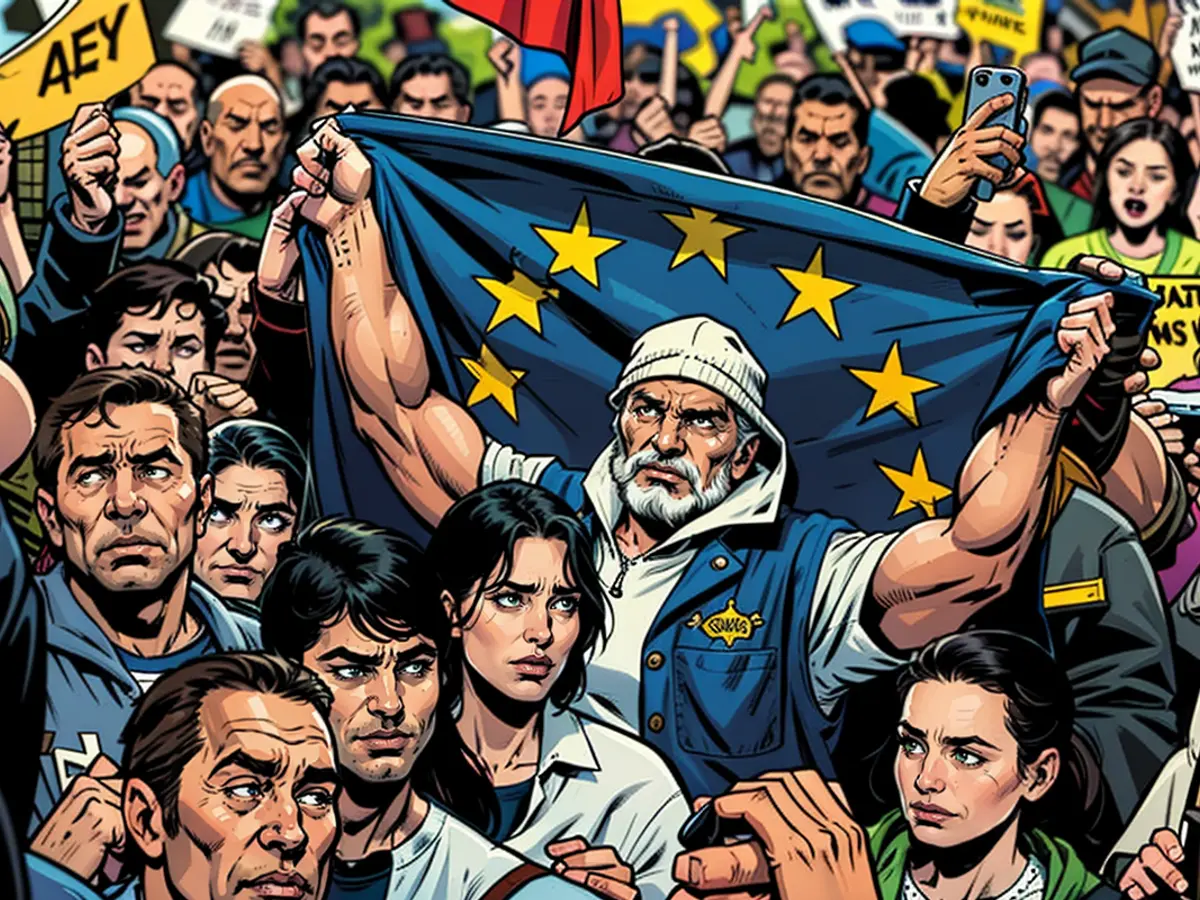EU halts Georgia's accession process for the time being
With a law for stronger control of civil society, the ruling party in Georgia is causing part of the population to turn against it. The European Union is taking consequences: The membership process of Georgia is put on hold.
The European Union is freezing the membership process of Georgia. The reason is the current course of the political leadership in Tbilisi, as stated in a declaration of the heads of state and government from the Brussels summit.
The European Council expresses serious concerns about the latest developments in Georgia. The authorities must reverse the current course, as this endangers Georgia's way into the EU and effectively leads to a halt in the membership process.
The EU candidate status was granted to the country with around 3.7 million inhabitants in the last December, after it applied for EU membership shortly after the beginning of the Russian aggression war against Ukraine.
Law led to mass protests
Concretely, the states and governments mention a new law for stricter control of civil society as an example of the negative developments in the former Soviet republic on the southern border of Russia. This law was passed by the parliament in May despite weeks of mass protests against the "Russian law". It overruled a veto by the pro-European president Salome Zurabishvili.
The Georgian Dream party, which holds the majority in parliament, is tightening the accountability of non-governmental organizations that receive more than 20% of their money from abroad. They justify this with greater transparency. A similar law in Russia labels these organizations receiving foreign funding as "foreign agents".
The heads of state and government of the EU see in the Georgian law "a step back in relation to recommendations of the EU Commission for the EU membership candidate status. Regarding the actions of authorities against critics, they call for an end to the increasing intimidation, threats, and physical attacks against representatives of civil society, political leadership figures, civil activists, and journalists.
Government acts in two ways
Moreover, it is reminded in the declaration that respect for values and principles, on which the European Union was founded, is of essential importance for every country seeking membership. It must also be ensured that the parliamentary elections this autumn are free and fair.
Exactly what lies behind the course of the government in Tbilisi is still unclear. It is paradoxical that the Georgian Dream party, which has led successful talks on EU candidate status, is holding firm to the EU course - while at the same time maintaining good contacts with Moscow.
As a driving force behind the law, Bidzina Ivanishvili, the party founder, is mentioned. He became a billionaire with businesses in Russia and was also Minister-President at one time. He held the view in the past that Georgia had to protect itself from harmful Western influence.
The EU leaders express their concern over Georgia's new law affecting civil society, as discussed at the EU summit, which could potentially harm Georgia's EU membership progress. Despite receiving EU candidate status last December, Russia-like measures toward NGOs could hinder free and fair elections this autumn, which are crucial for EU membership.








